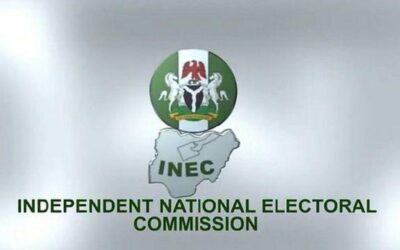Exciting Results from Nigeria’s Cashless Economy
A recent report from the Nigeria Inter-Bank Settlement System (NIBSS) reveal that Nigerians transacted over N20 trillion instant payment transactions in May 2021. Transactions in May 2021 were 0.15% higher than in April 2021. Instant payment transactions in May 2021 also showed a spending recovery from the month of April. The volume of transactions increased to 279.417 million from 265.121 million in May, a 5.4% increase. The transactions by volume of mobile inter-scheme transaction increased by 7.46%, from 18.36 million in April to 19.73 million in May. Value of transactions grew by 4.81% from 502.71bn in April to 526.9bn in May. This rise represents remarkable growth and sustained gains in the cashless policy introduced by the Central Bank of Nigeria (CBN) a few years ago.
The CBN introduced the policy on cash-based transactions which stipulates a cash handling charge on daily cash withdrawals that exceed N500,000 for Individuals and N3,000,000 for corporate bodies. This policy on cash-based transactions (withdrawals) in banks was aimed at reducing (not eliminating) the amount of physical cash (coins and notes) circulating in the economy, and encouraging more electronic-based transactions (payments for goods, services, transfers, etc.)
The policy, tagged “cashless economy policy”, was introduced for a number of key reasons, including to drive the development and modernisation of Nigeria’s payment system as an efficient payment system. This has been positively correlated with economic development and is a key enabler for economic growth. Another reason was to reduce the cost of banking services (including the cost of credit) and drive financial inclusion by providing more efficient transaction options and greater reach.
Read Also: Rain of Strikes on a Bleeding Economy
Another motive for its introduction was to improve the effectiveness of monetary policy in managing inflation and driving economic growth. In addition, the cashless policy was to curb some of the negative consequences associated with the high usage of physical cash in the economy, including the high cost of cash along the value chain – from the CBN & the banks to corporations and traders. At different stages, everyone bears the high costs associated with volume cash handling.
It was also introduced to limit the high risk of using cash, and reduce incidences of other cash-related crimes. The issue of high subsidy also necessitated its introduction, as CBN analysis shows that only 10% of daily banking transactions are above N150,000, but the 10% account for the majority of the high value transactions.
This suggests that the entire banking population subsidises the costs that the tiny minority 10% incurs in terms of high cash usage. Additionally, high cash usage results in a lot of money outside the formal economy, thus limiting the effectiveness of monetary policy in managing inflation and encouraging economic growth. High cash usage also enables corruption, leakages and money laundering, amongst other cash-related fraudulent activities.
The CBN had set daily limits of cumulative withdraws and lodgements of N500, 000 for individuals and N3, 000, 000 for corporate customers The operation of the system does not mean the individual /corporate customers cannot hold cash in excess of N500, 000/N3,000,000 at a single point in time, but that their cumulative cash transactions with the bank must not exceed these limits over a period of one day. This was targeted at encouraging electronic means of payment and not aimed at discouraging cash holdings.
The CBN went ahead to license six Payment Terminal Service Providers (PTSPs) to support and maintain Point-of-Sale (POS) terminals. The step was a bold demonstration that the apex bank was determined to see the policy work. The initially-licensed PTSPs are ITEX, ValueCard, ETOP, Paymaster, Citi Serve and Easy Fuel, which is focused on the downstream sector. CBN also moved a step further by assuring Lagos residents that there would be no need for a separate POS terminal for each type of card scheme, as all terminals would be equipped to accept payments for any type of card. The cards in the scheme are Verve, Genesis, Master Card, Visa, etc.
The success of this policy requires the increased use of alternative payment systems including e-banking, which is the provision of banking services to customers through the internet. Services offered by banks using the internet include: Mobile banking (M-banking), video banking, fund transfers, e-payments and ATM cards. Of all these e-banking services banks offer, the ATM is by far the most popular in Nigeria.
However, technological advancement keeps broadening the frontier of possibilities in all human endeavours and thus, more e-banking services are being developed and introduced. As of today, all the deposit money banks in Nigeria and most other financial institutions offer e-banking services.
The successes recorded in the country’s burgeoning e-payment system did not just happen overnight. During introduction, there were many challenges that confronted this cashless policy of payment in the Nigerian economy.
These included network unreliability, and issues of instability of Point of Sale (PoS) networks, which is prevalent across all operators. Major concerns were raised about operations in rural areas, especially where there is weak network coverage in terms of money transfer; which would pose a significant barrier to usage, especially when money sent is not received when needed or vice versa.
Another challenge was the regular occurrence of electronic fraud. The issue of security also brought some concerns raised about trust in the agents providing cash-in and cash-out services. This could be risky for customers and the agents if there is no form of assured security. There were also worries about system stability and fear of the unknown, as the existential banking challenges (in both deposit money banks and microfinance banks) has not helped to allay the public’s fear about the financial system. There were palpable fears that the amount of policy instability in banks and other financial institutions may jeopardise the e-payment programme in Nigeria.
Experts also raised concerns about the level of literacy, a situation where the targeted populace were not all literate, while some of them do not know how to make use of e-banking. Lack of adequate infrastructural development, particularly energy (power), also puts a lot of constraints on the operations of e-payment machines initially.
The CBN was however strategic in its efforts at making the programme sustainably successful and it embarked on deliberate steps towards achieving its ambition of e-payment and cashless system in Nigeria. It understood that the migration of the nation’s payments system towards a cashless society would require some reforms and a lot of effort and sensitisation, especially for low income and financially illiterate customers, who are currently deeply rooted in using cash and see it as a convenient and easy way of receiving and making payments.
Upon introduction, the CBN launched a massive and sustained sensitiation exercise in conjunction with various stakeholders, including government, financial institutions and non-bank providers of payment services that served to educate and enlighten Nigerians on the numerous gains and comfort associated with the usage of e-payment channels.
The regulatory authorities also ensured that the policy was properly eased in with strict but moderate regulations, using moral suasion to drive it home. Coercive measures were minimised and the economic and personal benefits of the scheme were propagated instead. The CBN worked closely with financial institutions, especially deposit money banks who relate intimately with customers. They utilised the close relationship the banks have with customers to gradually integrate and harmonise e-payment means and methods into the traditional banking systems.
Banking institutions were also swiftly licenced to simplify the processes of issuing POS terminals to customers who wanted it. It soon became a norm, as almost all retail shops, shopping plazas, restaurants, hotels, supermarkets, mobile traders and even convenience stores nationwide now have POS terminals where customers can conveniently make payments. Public trust and confidence in the e-payment system is now remarkably elevated, as most banks have special units to handle cases of challenges/obstacles met by customers while trying to use their e-payment means for financial transactions.
The level of security in cashless transactions have also improved with the introduction of mobile apps, internet banking, USSD banking etc. using the standard secure pass, unique token ID, OTPs (One-Time-Passwords) to significantly eliminate the risk of fraud and money loss.
The CBN also collaborated with strategic partners in other banking objectives such as financial inclusion campaigns and grassroots reach to integrate elements of e-payments into their respective programmes. There is also robust partnership with telecommunication and ICT companies to consolidate mobile capacity and internet reach nationwide.
The variety of benefits derived by private and corporate customers from the sustained utilisation of e-payment systems in Nigeria include increased convenience, more service options, reduced risk of cash-related crimes, cheaper access to (out-of-branch) banking services, access to credit and financial inclusion, faster access to capital, reduced revenue leakages and reduced cash handling costs. For government, the gains included increased tax collections, greater financial inclusion, and increased economic development.
Payment systems in Nigeria during the past few years have undergone significant progress, but the CBN cannot afford to rest on its oars, as consolidation of these gains have to be strategically executed. Nigeria needs to improve infrastructure to continuously sustain the policy.
There is the need to still create more awareness to entice small scale businesses and large percentage of the population at the grassroots who are still oblivious of most of these giant strides. Some Nigerians are still not fully aware of the benefits of electronic payments and are therefore slow to adopt it, due to fear of losing money or being swindled.
The banks must also not relent in its efforts to promote confidence in e-payments and adopt emerging technologies to increase secure transactions. It is also further recommended that strategic segments of the economy be the subject of focus first, especially the unbanked segment. This way, the vision of reducing the unbanked will be done gradually and systematically. The cashless policy will continue to help achieve the CBN’s objective of expanding, deepening and modernising payment solutions in Nigeria.
Consolidating on the policy will also assist in breaking the traditional barriers hindering financial inclusion for millions of Nigerians and bring low-cost, secure and convenient financial services to urban, semi-urban and rural areas across the country, especially through mobile payment services. Nigerians, government, firms, banks and other stakeholders are therefore urged to continuously support this initiative.


